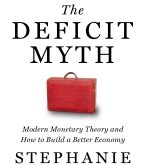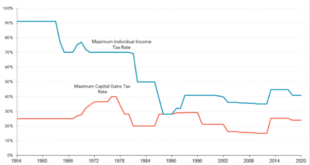from Thomas Palley Federal Reserve Vice-Chair Richard Clarida has shot himself in the foot with what appears to be insider trading. That comes on the heels of prior concerns about inappropriate trading by regional Federal Reserve Bank Presidents Robert Kaplan and Eric Rosengren. Albeit unintentionally, the good news is these indiscretions may have done working families a favor by helping disprove the notion of central bank independence. For years, many of us have argued that central bank...
Read More »Does MMT have an inflationary bias?
from Lars Syll A view yours truly often encounters when debating MMT is that there is an inflationary bias in MMT and that its framework ignores expectations. It is extremely difficult to recognize that description. Given its roots in the writings of Keynes, Lerner, and Minsky, it is — to say the least — rather amazing to attribute that view to MMT. Let me just quote one source to show how ill-founded the critique is on this issue: MMT recommends a different approach to the federal...
Read More »Teacher Dean intro
Here is a video submission I made in order to teach kids English. Short, sweet and educational! Leave a like if you enjoyed it.
Read More »The number of billionaires in Asia Pacific has increased by almost a third on pre-pandemic levels
Coronavirus has widened the cracks in this unequal system, fuelling a pernicious cycle of poverty and economic inequality in Asia. The World Bank estimates that coronavirus and rising economic inequality pushed 140 million additional people into poverty in Asia in 2020, and 8 million more in 2021.6 New variants alongside higher inequality levels than expected7 mean these figures are likely to be underestimates. Yet, while lockdowns and economic stagnation destroy the livelihoods of many...
Read More »The power and poison of MMT
from Lars Syll MMT includes both problematic propositions and perfectly reasonable — even highly useful — positions. In the latter category, the idea that stands out is essentially functional finance theory. Proposed by Abba Lerner in 1943, FFT holds that, because governments borrowing in their own currency can always print money to service their debts, but still face inflation risks, they should aim to balance supply and demand at full employment, rather than fret about balancing the...
Read More »The continuing phony debate on “free trade”
from Dean Baker The national debate on free trade is one where honesty has no place. The purpose of our trade agreements, which were not free trade, was to reduce the pay of manufacturing workers, and non-college educated workers more generally, to the benefit of more highly educated workers and corporations. This was the predicted (by standard economics) and actual result. We made our manufacturing workers compete with low-paid workers in China and elsewhere in the developing world. This...
Read More »new issue of WEA Commentaries
WEA Commentaries Volume 11, Issue 4 download the whole issue Pandora Papers and tax havens: what do they tell us?Mitja Stefancic Brazilian Foreign Policy: crisis and preliminary effects on International Cooperation and DevelopmentPatrícia Andrade de Oliveira e Silva and Pietro Carlos de Souza Rodrigues On Diane Coyle’s Cogs and MonstersLars Syll Combatting Global Warming: The Solution to China’s Demographic “Crisis”Dean Baker Regulation of international capital flows in developing...
Read More »Uncertainty and “trailing clouds of vagueness”
from Lars Syll We live in a world permeated by unmeasurable uncertainty — not quantifiable stochastic risk — which often forces us to make decisions based on anything but ‘rational expectations.’ Our expectations are most often based on the confidence or ‘weight’ we put on different events and alternatives, and the ‘degrees of belief’ on which we weigh probabilities often have preciously little to do with the kind of stochastic probabilistic calculations made by the rational agents as...
Read More »A Better World
from Dean Baker Okay, I’m a bit slow for a New Year’s piece, but what the hell, we can always use a bit of optimism. Anyhow, I thought I would spout a few things about what the world might look like if we didn’t rig the market to give all the money to rich people. Not much new here for regular readers, I just thought I would spell it on paper, since it is a nice backdrop for many of our battles. Before I go through my favorite unriggings, let me start by making a general point, which some...
Read More » Real-World Economics Review
Real-World Economics Review





